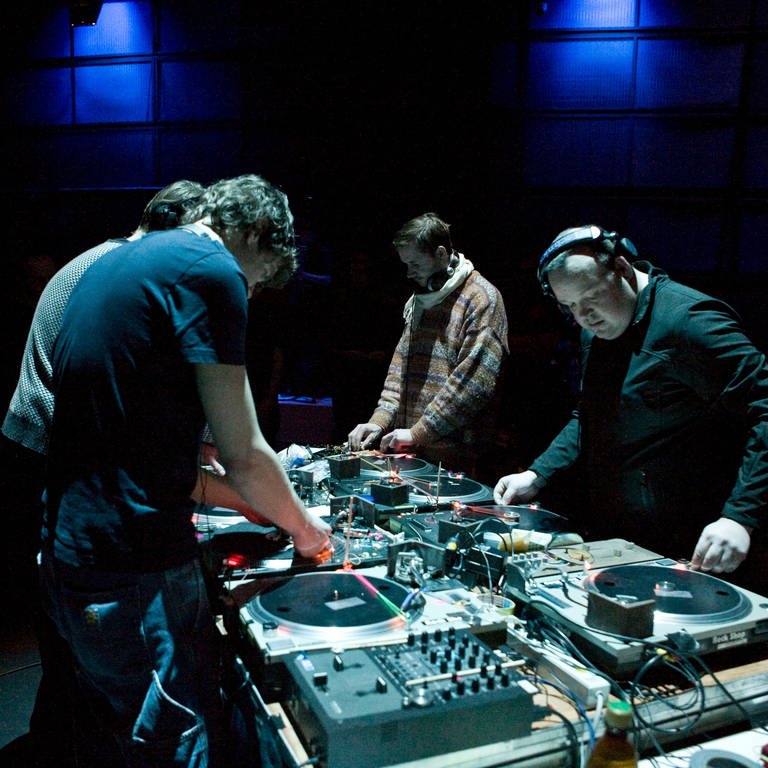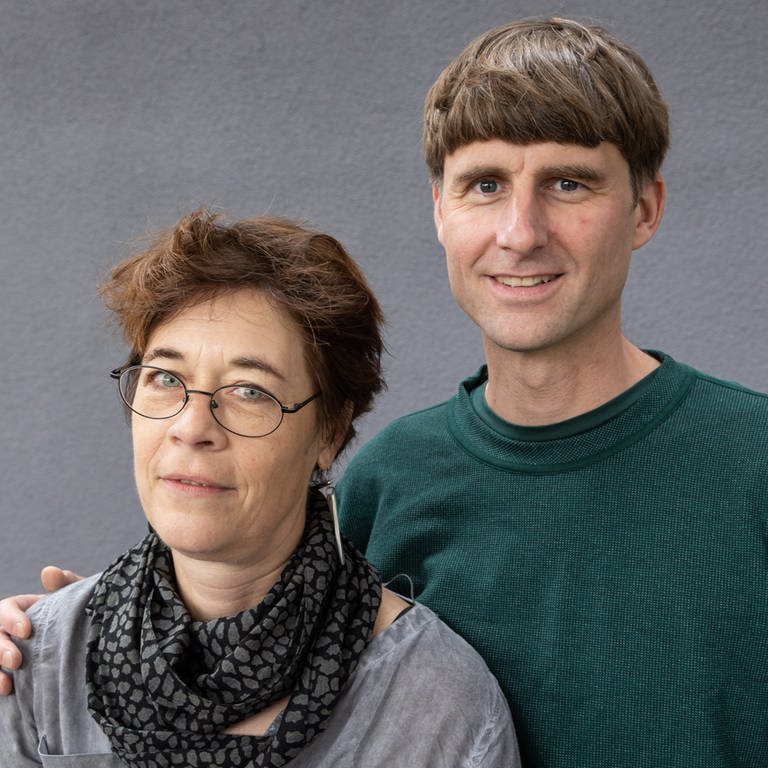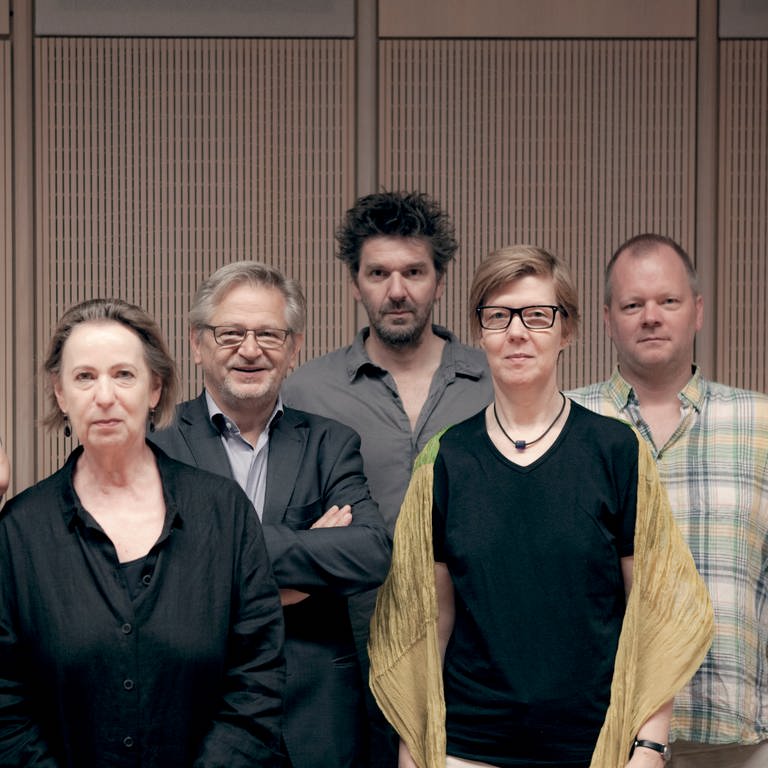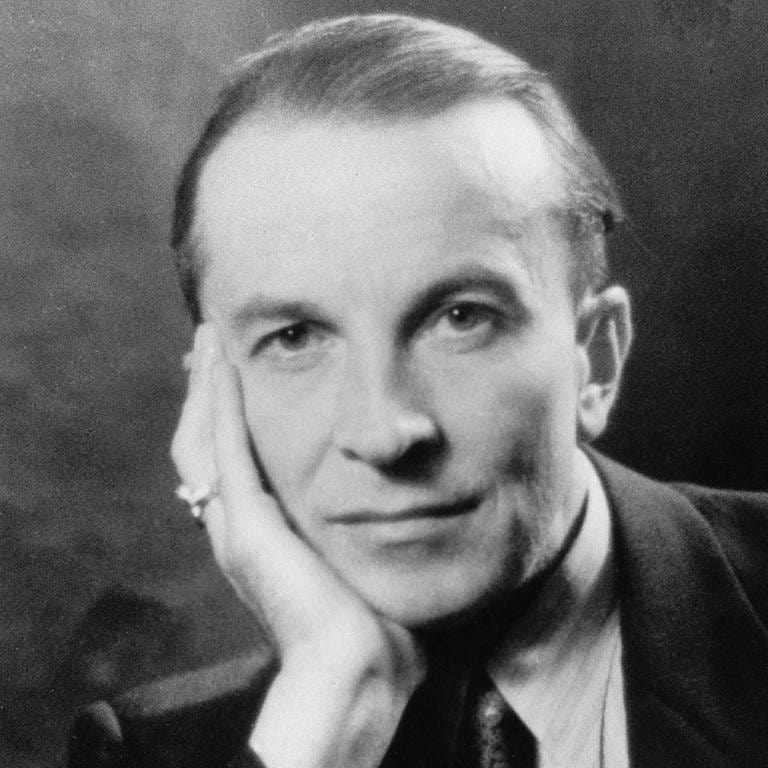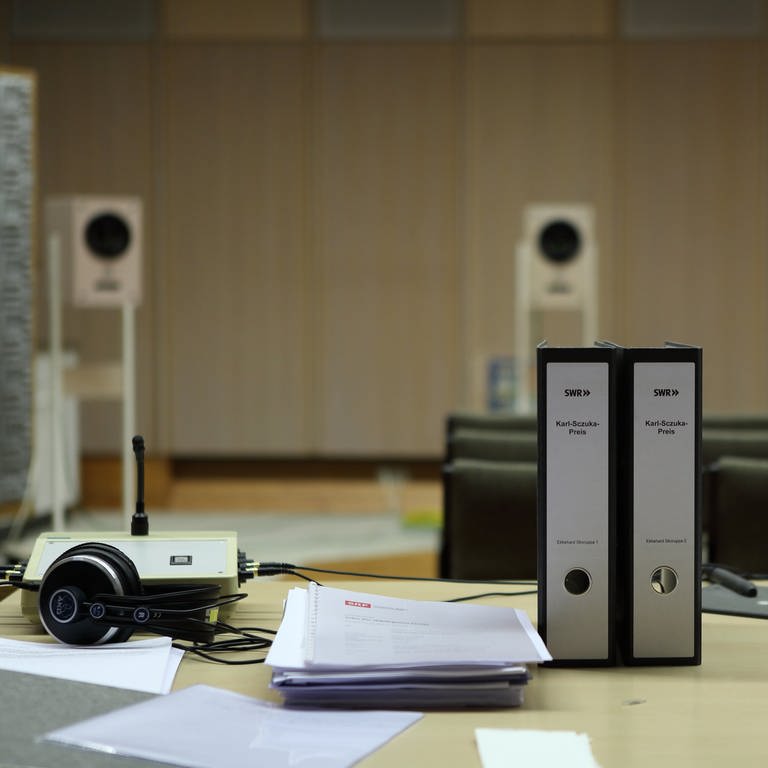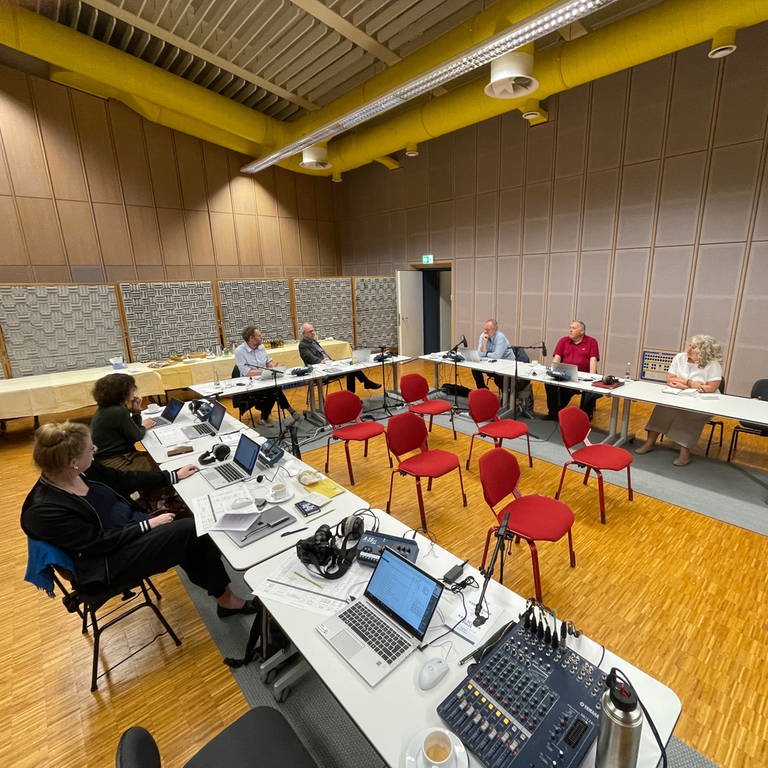"vogelherd. mikrobucolica" is the title of one of the most mysterious and yet most concrete poetry cycles by the poet Thomas Kling, who died in 2005 at the age of 48. - A Vogelherd is a device for catching birds, also for songbirds - traditionally an image for the poet himself. In Kling's text, the Vogelherd simultaneously becomes the trapping place for poetic language, for the perceiving eye and ear. Thomas Kling once said that his poems are "perception apparatuses."
The approach of the radio play is to be understood as a "search in six stanzas and four bird motifs," attempting - ostensibly - to find out what the text is about: Together with her 'co-researcher' Norbert Wehr, Ulrike Janssen visits the Thomas Kling Archive, reviews the estate, consults ornithologists and philologists, explores the rocket station, a renaturalized former NATO missile base where Thomas Kling lived for the last 10 years, and ascends the fortress tower redefined by Kling as the "poet's tower," which stands next to his former apartment.
The actual research takes place on the acoustic level: in exploring the linguistic and musical space that poetry unfolds. It moves from the murmuring attempts to decipher the notes from the estate to the background noises in conversation, to the recitations of the poet in a live recording, accompanied by the restrained speech of Otto Sander and the unaffected reading of the child Lu Janssen, from there back to the babble of voices of the philologists. It intersects the sounds recorded during the research - a slamming door, footsteps on a staircase - with the percussion and bass clarinet sounds of the music composed by Gerd Bessler. It seeks the points of contact and contrast between Kling's poetic language and the "songs" and mnemonics devices of bird call imitator Uwe Westphal.
Thus, the audio piece explores the motifs offered by Thomas Kling's text (who also saw himself as a historian and researcher): bird language and onomatopoeia, shepherd songs and idyll, hunting and war, artificial landscapes interspersed with radio towers and the remnants of a formerly military-used terrain.
The poem and the noises, sounds, speech, and music fragments that adhere to it become a perceptual apparatus for poetry: concrete and mysterious, neither plain text nor incomprehensible sound, but everything in between: "netz-kürzel-gesang".
Voices: Susanne Reuter, Lu Janssen, and Otto Sander
As well as, in the original tone: Thomas Kling, Norbert Wehr (researcher), Karl-Heinz Frommolt, and Uwe Westphal (ornithologists), Ute Langanky (painter, widow), Alena Scharfschwert (archivist), Erk Grimm, and Peer Trilcke (philologists), Norbert Hummelt, Marcel Beyer (poets), and others.
Direction: Ulrike Janssen
Composition: Gerd Bessler
Dramaturgy: Elisabeth Panknin
Production: DLF/HR 2011
Duration: 46’12 minutes
The award winner
Ulrike Janssen, born in 1967 in Leverkusen, lives and works as a freelance radio author and director in Cologne. She studied German literature, philosophy, and French at the University of Cologne and obtained her doctorate there with a thesis on "Sacred Signs." Until 2000, she worked as a research associate and lecturer at the Institute for German Language and Literature in Cologne. In addition, she worked as a theater critic, online editor, and theater dramaturge. From 1999 to 2002, she curated and moderated, together with Ute-Christine Krupp and Thomas Hettche, the poetics series "Schreibfiguren" in Cologne, Stuttgart, and Basel. In addition to the publication "Zuerst bin ich immer Leser. Prosa schreiben heute," which Ulrike Janssen co-edited with Ute-Christine Krupp at Suhrkamp Verlag, the series also produced the first radio features for Westdeutscher Rundfunk. Since then, Ulrike Janssen, initially as an author and later also as a director and producer of her own pieces, has created over thirty features for various broadcasters in the German-speaking world, many in collaboration with Norbert Wehr. These are mostly acoustic portraits and sound collages about and with writers such as Peter Kurzeck, Reinhard Jirgl, Herta Müller, Anja Utler, Nicolaus Born, Einar Schleef, Hubert Fichte, or Peter Waterhouse, which aesthetically operate at the intersection between feature and radio play.
Ulrike Janssen was a fellow of the German National Academic Foundation and the Cross-Border Program of the Robert Bosch Foundation. - Already in 2005, she produced, in collaboration with Norbert Wehr, a radio feature titled "Nachbildbeschleunigung" on the first anniversary of the death of the poet Thomas Kling. "vogelherdrecherche" with and after a text by Thomas Kling is Ulrike Janssen's first radio play production as an author and director. It was commissioned for the Frankfurter Positionen 2011 and was presented live as part of this festival on February 8, 2011, at the Frankfurt LAB, in collaboration with the painter Ute Langanky (room installation) and the vogelhertz® ensemble of the composer Gerd Bessler, which emerged from their joint work on the radio play.
